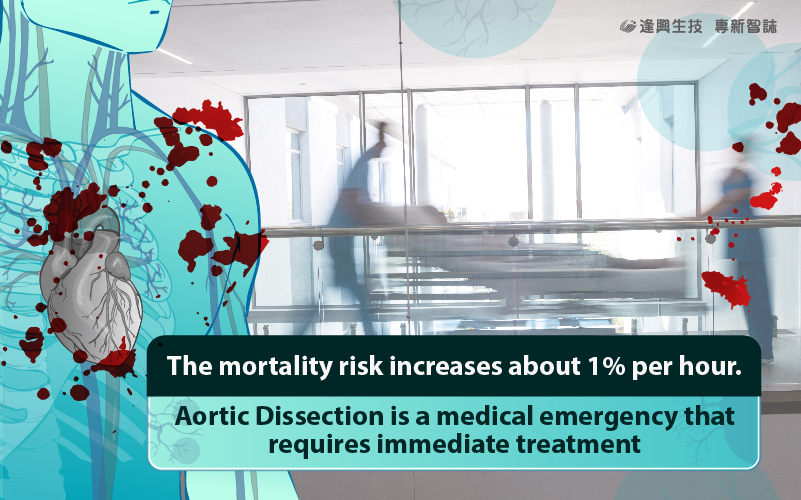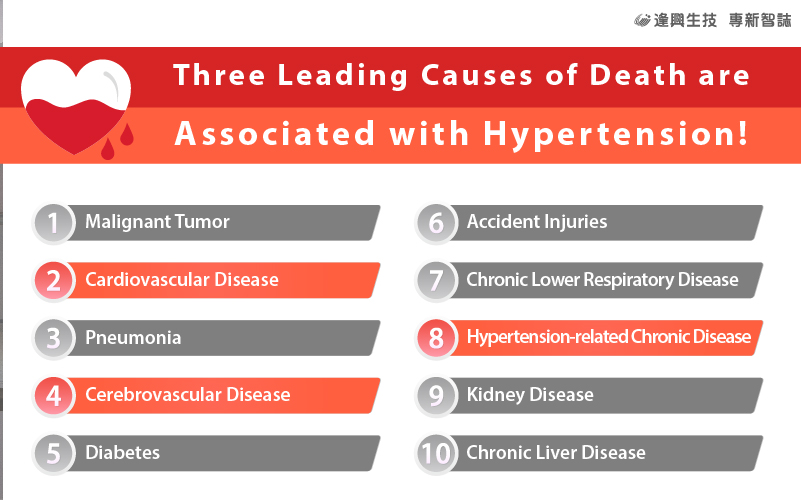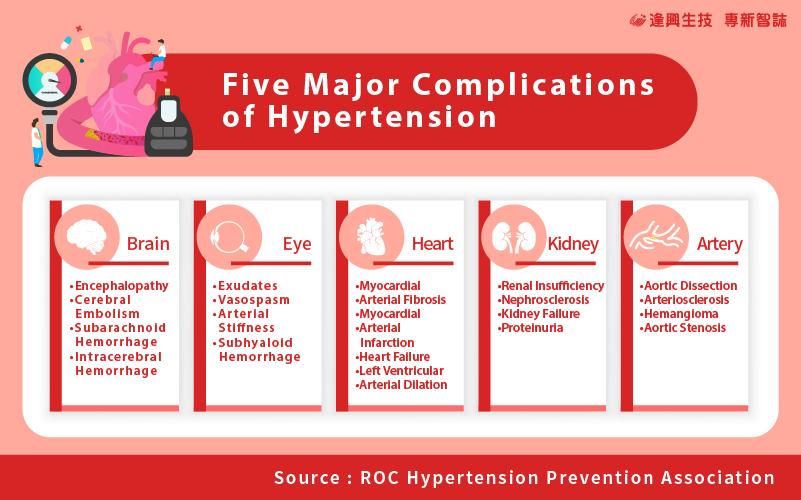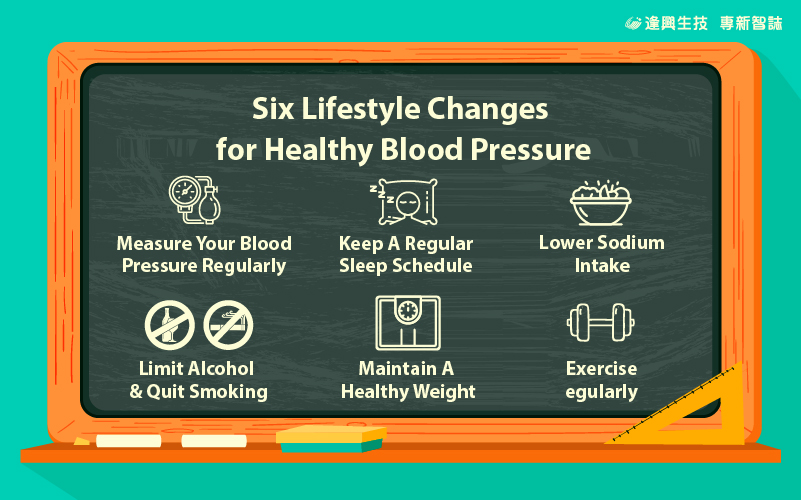In the past ten years, the mortality rate of cardiovascular diseases has increased to 3.5 times higher than cancer, making people more aware of the health impact brought by cardiovascular diseases. Aortic dissection is the life-threatening cardiovascular condition that has gained a lot of attention recently. The data show that about 75 percent of the patients die before reaching the emergency department and at least 50 percent of the patients die within 48 hours. The mortality rate of patients with aortic dissection increases 1-2% per hour and the post-surgery survival rate is about 50 to 70% at five years.

Hypertension is the main cause for aortic dissection. WHO has regarded hypertension as a global public health issue which contributes to eight millions of deaths a year. The BBC report indicates that one out of three deaths is due to hypertensive heart disease. According to the statistics from Ministry of Health and Welfare in 2019, two in every nine adults die from the heart disease, hypertension-related disease, and cerebrovascular disease caused by high blood pressure. These three conditions are now among the top 10 leading causes of death, killing 38 thousands two hundreds and ninety people in Taiwan.

In addition to aortic dissection, cardiac lesions, and artery lesions, hypertension could lead to many complications such as cognitive impairment, kidney failure, hypertensive retinopathy, and vision loss. Therefore, hypertension is the health issue that we need to pay more attention to.

There are two types of hypertension: primary and secondary hypertension. More than 90 percent of the high blood pressure cases in adults are primary hypertension with lifestyle habits and heredity being the main factors. Certain lifestyle factors can increase the risk of hypertension such as a diet high in salt intake, heavy drinking and smoking, excessive amount of stress, and obesity. Secondary hypertension is the high blood pressure caused by another medical condition such as kidney disease, abnormal endocrine system, and adrenal gland disorder. Using steroids or amphetamine may also be the factor for secondary hypertension. High blood pressure typically does not cause symptoms even when levels are dangerously high, which people often fail to realize until the development of atherosclerosis, stroke, myocardial infarction, or other complications. Therefore, it is extremely important to prevent high blood pressure from getting worse or causing complications.
Reference resources:
Aortic Dissection
https://www.sciencedirect.com/topics/medicine-and-dentistry/aortic-dissection
Raised blood pressure-WHO
https://www.who.int/gho/ncd/risk_factors/blood_pressure_prevalence_text/en/
Causes of Death-The number of deaths by risk factor
https://ourworldindata.org/causes-of-death
Increased Risk of High Blood Pressure in Winter – Prevention is Better than Cure
Blood pressure is the force of the blood pushing against the arterial walls. The force is generated with each heartbeat with the heart acting as a pump, moving blood around the body through the network of blood vessels. Systolic blood pressure is the pressure when the heart contracts and diastolic blood pressure is the pressure when the heart relaxes. A healthy blood pressure is considered to be equal to or lower than 120/80mmHg. Readings between 130/85 mmHg indicate that a person is at risk of developing hypertension while having the readings greater than 140/90 mmHg signifies hypertension.
Cold weather can increase blood pressure. As temperatures drop, our blood vessels tighten, increasing the risk of hypertension-induced myocardial infarction. They found that for every 1°C decrease in temperature, there was an increase of 0.5 mmHg in blood pressure. For that matter, besides staying warm, it is highly recommended to rest in bed for about five minutes longer before getting up to avoid blood pressure fluctuations. Making sure to stay warm at all times is essential to prevent myocardial infarction and stroke.
The hypertensive patients are required to pay extra attention to their dietary habits and recommended to take medications on a long-term basis to control their blood pressure. Prevention is much better than cure and six tips to prevent hypertension are listed as the following:

- Measure your blood pressure regularly: check once or twice a week if your blood pressure falls in the healthy range. It is recommended to seek medical advice immediately if having a blood pressure greater than 140/90 mmHg.
- Keep a regular sleep schedule: Try to sleep before 11pm and cultivate the habit of becoming an early riser.
- Lower sodium intake: avoid fats and condiments and consume more whole grains, fruits, and dark green leafy vegetables.
- Limit alcohol and quit smoking: smoking and drinking can raise blood pressure and increase the risk of heart attacks and strokes.
- Maintain a healthy weight: numerous studies have suggested that hypertension is highly associated with weight gain.
- Exercise regularly: exercise could lower blood pressure, promote weight management, and reduce the risk of cardiovascular diseases.
Hypertension does not only happen to elderly; therefore, it is extremely crucial to practice the aforementioned lifestyle habits and take adequate amount of supplement for prevention.
For more information about Maternity Care Market,you can visit the article: Aortic Dissection Could Be Fatal. Lower Blood Pressure To Live A Brighter And Happier Life. Aortic Dissection – the Devastating Condition with High Mortality Rate Part.2
To retrieve passwords please fill in the form or email us at, service@welbloom.com.tw, and our sales representative will get in contact with you as soon as possible.
Wel-Bloom Bio-Tech, experts in dietary supplement foods research and development in Taiwan
